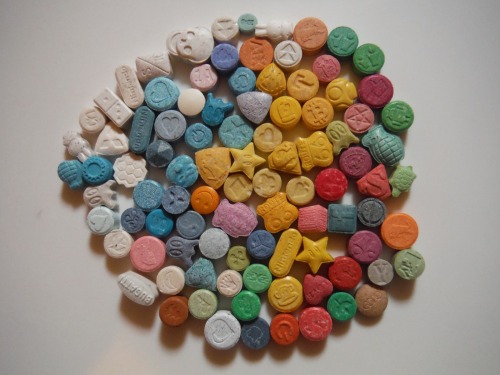Description
Buy MDMA (Molly/Ecstasy) Online
Buy Ecstasy Pills Online, MDMA, also known as Molly or Ecstasy, is one of the most widely recognized synthetic drugs in nightlife and festival culture. Often linked with electronic dance music scenes, MDMA is valued by some for its euphoric and empathogenic effects. However, behind its reputation as a “party drug,” MDMA carries significant health risks and legal consequences.
In this guide, we’ll cover:
-
What MDMA is and how it works.
-
Its short- and long-term effects.
-
Health risks and dangers.
-
Legal status worldwide.
-
Harm-reduction strategies and support resources.
By the end, you’ll have a balanced, science-based understanding of MDMA.
What is MDMA (Molly/Ecstasy)?
MDMA stands for 3,4-methylenedioxymethamphetamine, a synthetic psychoactive drug first developed in the early 1900s. While it was briefly researched for psychotherapy, it later became a recreational drug in the 1970s and 1980s.
Today, it is commonly sold as colorful tablets (“Ecstasy”) or crystalline powder (“Molly”). However, purity is often uncertain since many pills are mixed with other substances, including caffeine, amphetamines, or more dangerous synthetic chemicals.
Buy Ecstasy Pills Online, what is MDMA, Molly vs Ecstasy, MDMA drug information
How Does MDMA Affect the Brain and Body?
MDMA impacts three major neurotransmitters:
-
Serotonin: Creates mood elevation, feelings of empathy, and emotional closeness.
-
Dopamine: Increases sensations of pleasure and reward.
-
Norepinephrine: Elevates heart rate, blood pressure, and alertness.
These combined effects explain MDMA’s popularity in social and party environments. However, overstimulation of these brain chemicals also contributes to serious health risks.
Short-Term Effects of MDMA
When taken, MDMA typically takes effect within 30–60 minutes and can last 4–6 hours.
Common short-term effects include:
-
Euphoria and increased energy
-
Heightened sensory perception (lights, music, touch)
-
Increased sociability and empathy
-
Reduced sense of fear or anxiety
Possible negative side effects:
-
Nausea, sweating, or chills
-
Muscle cramping and jaw clenching
-
Blurred vision and dizziness
-
Anxiety, irritability, or paranoia
Keywords to target: MDMA effects, Ecstasy high, short-term effects of Molly
Long-Term Risks of MDMA Use
While occasional users may focus on short-term experiences, repeated MDMA use can lead to long-lasting consequences.
Potential long-term risks include:
-
Sleep problems and chronic fatigue
-
Memory and concentration difficulties
-
Increased risk of depression and anxiety
-
Potential damage to serotonin-producing neurons
-
Dependence and compulsive use in some individuals
Research suggests heavy MDMA use may alter brain chemistry for weeks or even months after use, which may explain post-use “crashes” or extended low mood.
The Dangers of MDMA: Why It’s Risky
Unlike some substances, MDMA has unpredictable risks due to both its effects and its unregulated production.
Overheating and Dehydration
MDMA raises body temperature, especially in hot, crowded environments. Combined with dancing, this can cause dehydration or, in severe cases, heatstroke.
Adulterated Pills and Powders
Many MDMA tablets contain little or no MDMA at all. Instead, they may be cut with methamphetamine, synthetic cathinones (“bath salts”), or other dangerous chemicals.
Overdose Risks
High doses or mixing MDMA with alcohol or other drugs increases the risk of overdose, seizures, or even death.
Keywords to target: MDMA dangers, Molly risks, is Ecstasy safe
Legal Status of MDMA Worldwide
In most countries, MDMA is classified as a Schedule I controlled substance (U.S.) or equivalent, meaning it has no approved medical use and a high potential for abuse.
-
United States: Illegal under federal law (Schedule I).
-
United Kingdom: Classified as a Class A drug.
-
Australia: Schedule 9 prohibited substance.
-
Canada: Controlled under Schedule III of the Controlled Drugs and Substances Act.
Penalties for possession, sale, or distribution vary but can include fines, imprisonment, and long-term criminal records.
Harm Reduction and Safety Strategies
While the safest choice is to avoid MDMA use entirely, some people may choose to take it. Public health organizations encourage harm reduction strategies to reduce risks:
-
Stay Hydrated (but not excessively): Sip water regularly, but avoid overdrinking, which can cause electrolyte imbalances.
-
Take Breaks from Dancing: Allow your body to cool down to prevent overheating.
-
Avoid Mixing Substances: Combining MDMA with alcohol, stimulants, or depressants increases risk.
-
Use Testing Kits (where legal): Reagent kits can help identify adulterated pills.
-
Be with Trusted Friends: Have a sober friend or support system nearby.
MDMA harm reduction, how to stay safe on Molly, Ecstasy safety tips
Buy Ecstasy Pills Online
If you or someone you know is struggling with MDMA use, professional support is available:
-
Talk to a healthcare provider: Doctors can offer confidential advice and referrals.
-
Local mental health services: Many organizations provide free or low-cost support.
Recovery is possible, and reaching out is the first step.
Frequently Asked Questions (FAQs)
1. What’s the difference between Molly and Ecstasy?
“Molly” usually refers to powdered MDMA, while “Ecstasy” typically refers to pressed tablets. However, both may contain adulterants, so neither guarantees purity.
2. Can MDMA be addictive?
While not as addictive as opioids or methamphetamine, MDMA can lead to psychological dependence, cravings, and compulsive use.
3. How long does MDMA stay in your system?
MDMA is usually detectable in urine for 2–4 days after use, depending on dosage, frequency, and individual metabolism.
4. Is MDMA used in medicine?
Research is ongoing into MDMA-assisted psychotherapy, particularly for PTSD. However, outside of clinical trials, MDMA remains illegal.
Conclusion
MDMA (Molly/Ecstasy) is often associated with music festivals and social events, but its use comes with significant health risks and legal consequences. While its short-term effects may feel euphoric and socially connecting, the potential for dehydration, overheating, adulteration, and long-term mental health issues cannot be ignored.
The best way to stay safe is to avoid MDMA altogether. For those who do choose to use it, practicing harm reduction strategies and being informed is essential. And for anyone struggling with use, support and recovery resources are always available.




Reviews
There are no reviews yet.